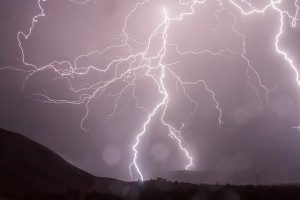As an adult volunteer, you are frequently confronted with one or more risk factors during an outdoor activity. Will you be able to deal with them, or will you find cause to ignore them? Priest and Gass, in their book Effective Leadership in Adventure Programming, 2nd ed., 2005, discuss the following factors which, in their view, can effectively inhibit someone from adequately addressing risk factors during an outdoor activity:
- New or unexpected situations: Someone with limited or no experience with a situation will have less ability to deal with confronted risks, making preparation all the more crucial for new activities;
- Inappropriate attribution: Where an activity leader inappropriately believes all good outcomes are the result of their “excellent skills and judgment”, and that all bad outcomes are the fault of factors out of their control, such as the weather;
- Relaxed concentration: Where an activity leader becomes complacent due to factors such as fatigue, distraction, familiarity with the activity, or just plain carelessness;
- Smelling the barn: Where the rush or desire to return home or complete the activity by a preset deadline overrides common sense or judgment calls that take into account the welfare of the group;
- The risk shift phenomenon: Where “group think” overrides an individual’s ability to express an opinion in the face of a potentially dissenting group (succumbing to peer pressure), and/or where an individual cedes personal responsibility for their own safety to the group due to lack of confidence in their own opinion, at times resulting in the group underestimating the level of risk to be encountered or able to be borne by each individual – for these reasons, many groups will assume more risk during an activity than would an individual in the same group; and
- Poor or unsound judgment: Since the ability to exercise good judgment is the result of factors such as experience and training, the exercise of poor or unsound judgment may correspondingly be the result of lack of experience in the situation encountered, which inhibits the constant self-reflection and questioning required of an activity leader regarding the decisions made, or still to be made.
The above makes clear that a volunteer leader must constantly ensure that the decisions being made during an outdoor activity are well-founded, and take into account not only the welfare of the group as a whole, but the welfare of each individual of the group, and that such decisions are not skewed one way or the other by the any of the above factors.
An example regarding a Philmont crew. A Philmont Ranger relayed a story to the author regarding a Philmont crew who, despite being given water purification tablets as part of their crew gear, apparently collectively decided (and the adult advisors permitted) the drinking of unpurified stream water. As a result, the entire crew apparently was stricken with Giardia upon return home, a totally avoidable consequence. Was this the result of a new situation, relaxed concentration, group think, or poor or unsound judgment (and by whom?), or merely wishful thinking?
Reference the decisions made in this almost-tragic kayaking story.

